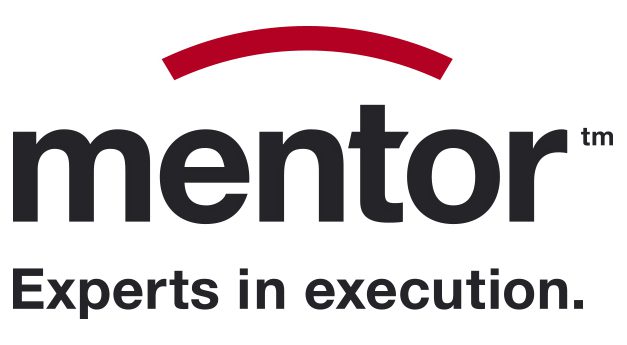Strategic Programs: Introducing a radical new model for a wildly successful program
Strategic Programs fail at a spectacular rate. Companies like McKinsey and PWC put the percentage failure rate as high as 90%.
Certainly, I’ve never seen this statistic quoted as anything less than 50%.
The odds are these success rates would be totally unacceptable for any other type of strategic investment.
Let’s be honest, this is a brutal statistic. And the toll is not just financial. The people working hard on these programs end up demoralised and feeling responsible. Individual and corporate reputations are shattered.
Dealing with the real culprit preventing program success – how people behave under pressure
Using our experience living through over 100 program turnaround assignments carried out over the last 30 years, we caried out in-depth analysis to determine why programs fail and what needs to be done to make them successful.
The findings are clear.
The simple answer is that the barriers to program success have little to do with processes like Prince2, or similar. Our findings clearly show that methodologies are simply an entry ticket to better performance. By themselves, they have done little to move the needle, in the past 30 years.
That’s because they don’t deal with the real culprit stopping every program from being a success story – The People Factor. How people think, act and behave under pressure.
Every executive has a responsibility to put this situation right. Program performances will continue to stagnate unless there is a concerted effort to deal with it.
Many of these behaviours are due to groupthink* and are seen beneath the surface of every strategic program.
(Groupthink* is a psychological phenomenon that occurs in a group of people, where the desire for harmony in the group, results in unsound decisions-making, without any critical evaluation of the consequences).
These behaviours pledge no allegiance to anyone. They are there no matter what.
With this in mind, we realised a new approach to program management was needed.
Strategic program success with the Mentor Execution Index
We have developed a program assurance tool that is radically different from anything seen to date.
It’s called the Mentor Execution Index (MEI) and it will change the way clients manage their strategic transformation programs.
Executives can now reliably anticipate, solve and cure complex program problems, long before they morph into major headaches.
So, if you’re involved in major programs and you want to skyrocket results, the MEI will give you insights you have not seen before.
What’s more, they’ll give you a head start in leading your company into the premier league of program performers.
MEI- Rooted in experience, driven by science to enable strategic program success
Simply put, the MEI creates an accurate picture – a detailed X-Ray – of what is going on in any strategic program.
Using new assessment and data analysis techniques, the MEI leverages decades of Mentor know-how with the transformative power of data analytics and AI. This combination delivers deep insights that lead to staggering improvements.
We have worked with award winning data scientists that are operating on the leading edge of these enabling technologies for companies like Google, Amazon, Honda & Ford.
Our strategy combines the best of three worlds, our extensive industry experience, our deep understanding of project methodologies and behavioural science.
The result is a proactive leadership tool that provides companies with a unique evaluation of the costliest social behaviours on every strategic program.
Fast accurate insights you can act on immediately – pre-mortem
You won’t have to wait long before discovering a potential crunch. You can rapidly find out what’s lurking in the shadows – in a matter of days.
The MEI can be used at any stage in a program’s lifecycle – although companies are using it more now as a pre-mortem, from the start.
This means, a company can get to grips with situations at the outset, rather than responding to them after they’ve happened.
Being in the driving seat with a pre-mortem is better, by far, than dealing with a post-mortem, which only happens when a program is beyond repair.
Executives want certainty that their programs will succeed every time.
Once you understand how these destructive patterns work together, you can confidently decode and unpack them.
We are entirely confident the MEI will give you a first-rate blueprint for success – but it won’t swing the hammer for you. Your team will have to do the work – and we can help you with that, where necessary.
A simple, fast and effective process
MEI works by bringing together 3 key stages quickly and cost effectively to get at the root of the human behavioural factors preventing program success:
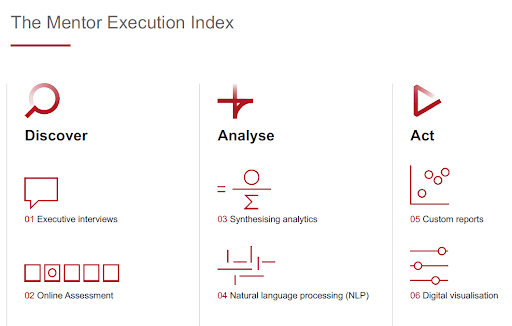
Executive interviews provide a high-level view of the program’s scope and objectives. Feedback on the key factors for success are measured and analysed.
These results are then compared with those people carrying out the work via an anonymous online assessment.
It contains 50 questions and is completed online in less than 30 minutes. The respondents are also able to clarify their responses with written comments. This provides a raw and “unfiltered” view of the state of your program, directly from staff at the coalface. It can also be run with your key suppliers and stakeholders to get an accurate end-to-end picture.
AI and data analytics are then used to assess the results and provide the detailed analysis.
We then add our own insight and expertise to produce custom reports, with action plans to work with customers to get programs back where they should be.
This may feel too good to be true, but I can assure you it works! We already have clients using MEI. With data driven insight, they have been able to pinpoint exactly where the problems were occurring, preventing program success, and we’re now working with them to get their programs back on track.
A deep dive – view by trait
MEI measures how the program stacks up against the conditions for program success in each of the six “balls” (traits) you can’t afford to drop. These are: alignment, planning, organisation, suppliers/partners, dependencies and culture
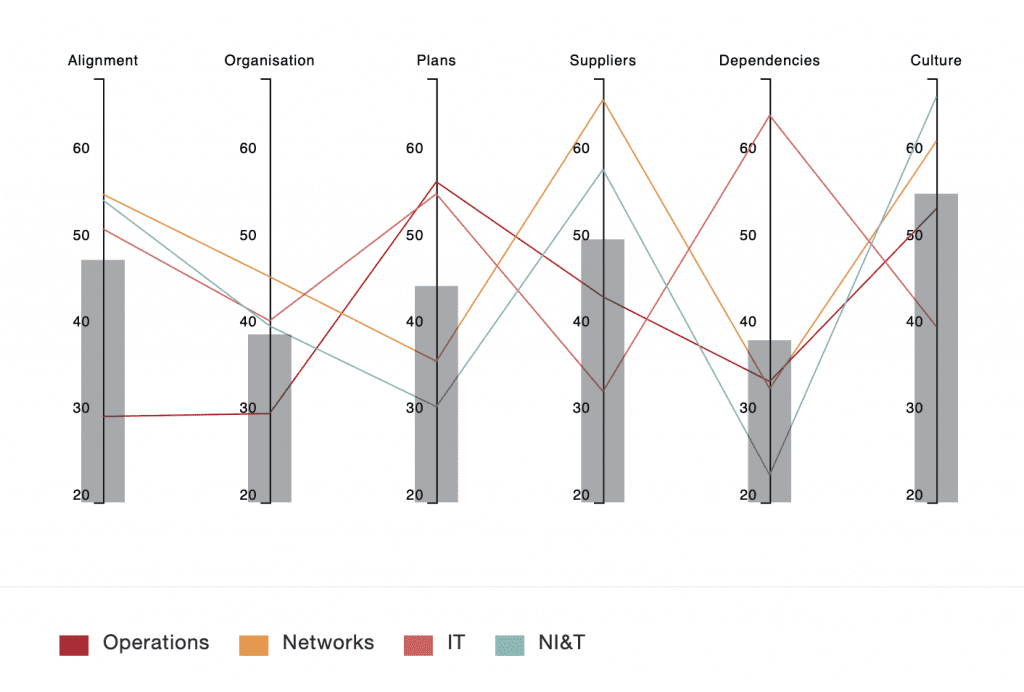
Gap analysis
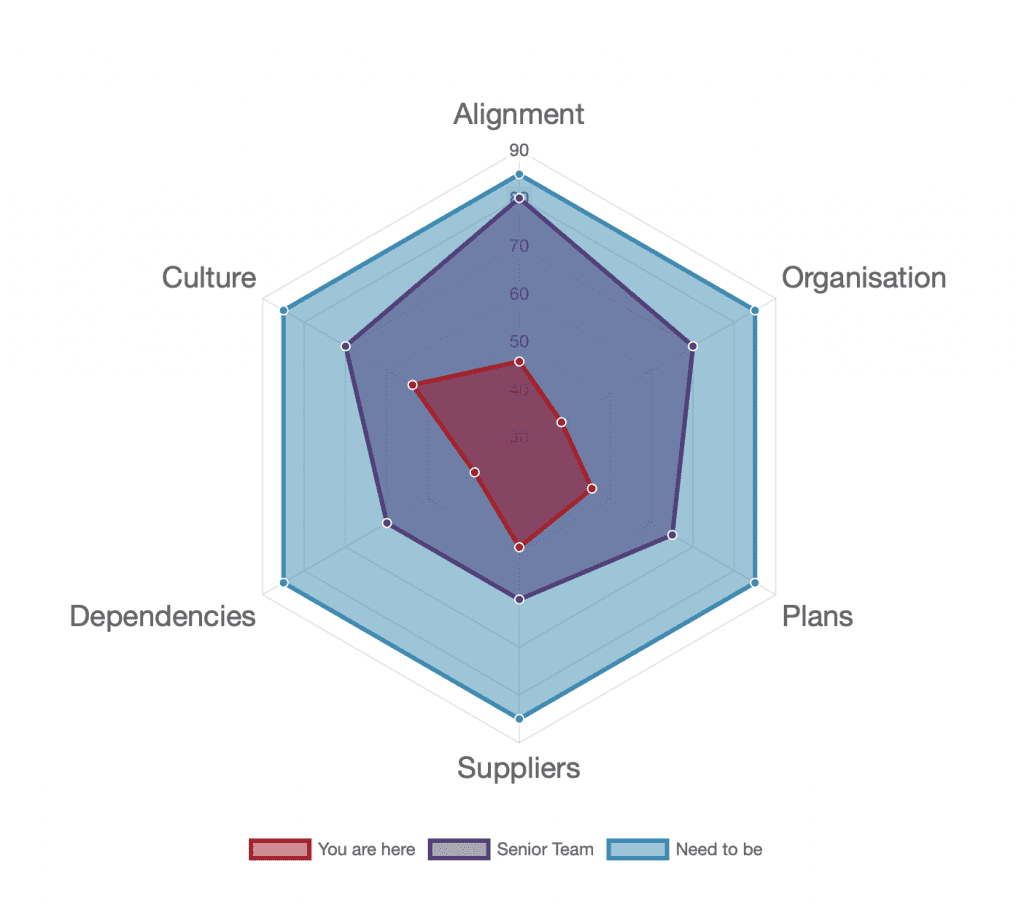
The full analytical read-out is available to the executive team, within a matter of days. Each feedback assessment is called a “Pulse”.
A Pulse can be run at any stage during a program. But it’s best to run one as close to the start as possible. Although many companies also choose to run additional Pulses periodically to track improvements.
There are 7 simple steps to each “pulse”.
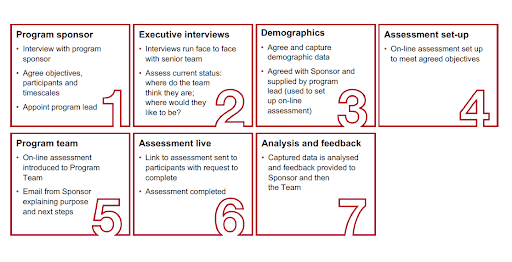
How MEI can help with your strategic program
- Information-rich results are fast – available from each Pulse within a week. (Manual health-checks are costly and can take several months to complete).
- Results are accurate, actionable and cost effective. For consistency, each respondent answers the same questions.
- The Assessment Report only contains the unvarnished views of participating staff. The report is not summarised or cleansed by external consultants.
- The results not only save time and money, but also provide an ironclad roadmap for future program success
If this sounds too good to be true…
…it’s because it is actually happening!
“Mentor is a great partner. They get to understand what it is you are looking to achieve; bring great substance, great people, great knowledge. They help you to get to the other side.”
Simon Beresford-Wylie, Former Arqiva CEO
“Mentor has two things: industry technical knowledge and their upfront method of executing programs. When they set out to do something, they make sure it’s done. So… expertise, great methodology and ultimately, reliable delivery.”
Derek McManus, former COO, Telefonica UK
If this rings a bell with you – and you’d be interested to hear how some of our clients’ successes might be relevant to your execution challenges, please email me now on david.hilliard@mentoreurope.com or reach out and contact us.
